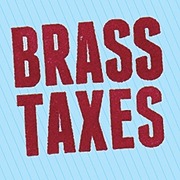Buying, Owning, and Selling a Home
Pulling Money Out of Retirement to Buy a Home
Getting together the money to buy a home can be challenging, and pulling money out of retirement account might seem like a good idea. Here are some things to think about if that's something you're considering.
Last updated on 13 Nov, 2025
Make Sure You're Thinking About the Whole Picture
Buying a home and having a retirement account are both big goals for a lot of people. But sometimes it can feel like they are a bit in competition with each other—like you have to shortchange one goal in favor of the other.
Everyone's situation is going be a little bit different here, and this is an important decision that will affect you long-term. Before you make a decision to pull money out of your retirement account, it's probably a good idea to talk with a financial advisor. Some cities and states offer free financial advising, and some free homebuying assistance programs also offer financial counseling.
What You Can Take Out and How Much Will it Cost
Retirement accounts come in a surprising number of flavors, and in some cases, there's some pretty serious fine print about what, when, and how you can take early withdrawals.
The information below is some basic information, but you'll want to be in touch directly with the financial institution that holds your retirement account before you make any withdrawals to make sure there aren't any particular rules about your account that you need to keep in mind.
IRA Accounts (including Roth, Traditional, and SEP)
Generally there's a 10% penalty for taking money out of your IRA early (i.e. before you turn 59.5 years old), but there's an exception for first-time homebuyers.
You can pull up to $10,000 out of your IRA without paying a penalty if you're a first-time homebuyer. If the money you're pulling out wasn't already taxed (most traditional IRA contributions and earnings or Roth IRA earnings), then you'll still need to pay taxes on that money; you just won't have to pay an additional penalty.
Roth IRA Note: The Roth IRA is different, because you contributed to the Roth with after-tax money (i.e. you already paid taxes on the money you put in there). So you can withdraw the amount you contributed to your Roth IRA at any time without penalty. The penalty comes into play if you withdraw the earnings on those contributions.
401k Accounts (including Employer and Solo)
This kind of account is where the specific rules of the plan can really come into play, so again, get in touch with your financial institution if you're considering this.
That said, you often have two options with a 401(k):
Take out a loan against your 401(k): You're essentially loaning yourself money using your account as collateral. This doesn't always make sense and the term for these loans is often shorter than a mortgage, but one nice thing is that your interest payments generally go back to you instead of to a bank. And generally you can borrow up to 50% of your vested account balance up to a maximum of $50,000.
Withdraw from your 401(k): Similar to the IRA, you would normally have to pay a 10% penalty for pulling money out of your account early (i.e. before you turn 59.5 years old), but as a homebuyer, you may qualify for a hardship withdrawal to cover the costs of buying a principal residence (generally the place where you're going to live). Unfortunately the limits on the amount are not as clear with 401(k) plans—there's not a fixed limit, the IRS just says: "The distribution is not in excess of the amount of the immediate and heavy financial need of the employee." So if you do go for this option, again, make sure to talk to folks at the financial institution and maybe a financial advisor as well to make sure you choose the right amount.
We can help you think through the financial implications of taking money out of retirement early in a consultation.

